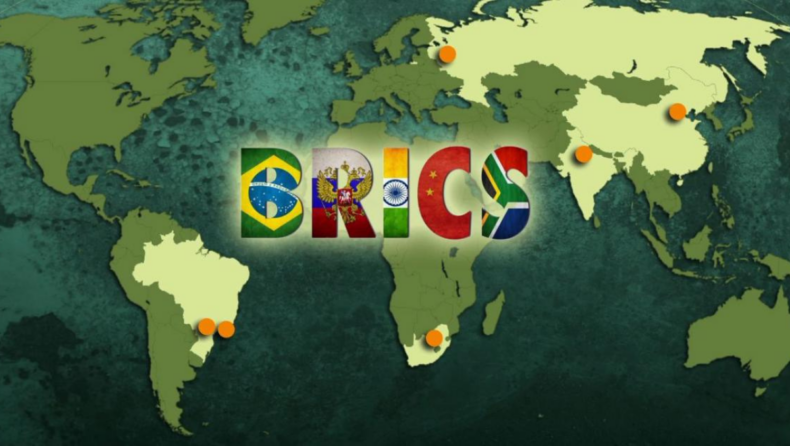Previously, the group stated that it was establishing a joint payment network to reduce dependency on the Western banking system. The BRICS nations have also increased the use of local currencies in bilateral commerce.
As per the president of Russia, member states are also developing alternative payment systems that are dependable.
The basket of currencies from the five-nation union. Vladimir Putin The president of Russia stated on Wednesday that the BRICS nations–Brazil, Russia, India, China, and South Africa–are in the process of establishing a new global reserve currency.

Domains of influence
The fact that Russia appears to be driving the conversation about a new reserve currency should not come as a surprise.
The rapidity with which western nations and their allies froze roughly half of Russia’s foreign exchange reserves astonished Russian authorities. The Central Bank of Russia confirmed as much, and no doubt certain BRICS members — China in particular — took note of the US Treasury’s speed and subtlety.

Therefore, BRICS states may see the need for an alternate reserve currency comparable to the IMF’s SDR. Remember that the IMF’s SDR is not a currency, but rather a collection of claims on major reserve currencies such as the dollar, euro, pound, yen, and its most recent addition, the renminbi.
The approximately $950 billion in outstanding SDRs are intended to supplement the reserves of IMF members.
In particular, IMF members got an extra SDR 456bn in August 2021 to help with their balance of payments needs after the pandemic shock.
Why would the BRICS countries require a basket currency similar to the SDR? One can only assume this is a response to the perceived US hegemony of the IMF, allowing BRICS to establish its zone of influence and currency within that sphere.
Intriguingly, this week there have been rumors that Russia may wish to manage the rouble’s strength via a peg or basket. The BRICS nations may be the basket against which the rouble is managed. We are aware that the CBR is not a supporter of rouble management.

To alleviate the rising strain on its capital account, Russia may have a strong incentive to participate in or begin an IMF-like program, regardless of the chance of such a proposal becoming a reality.
Russia is accustomed to being a net creditor to the rest of the world, as its large trade surplus is typically offset by a capital outflow (the purchase of foreign assets).
In this changing geopolitical context, due to sanctions/legal restrictions and, in some cases, individual decisions by financial institutions, Russian investments are no longer welcome in their traditional DM destinations.
At the same time, rising global interest rates may make EM and frontier markets want to borrow money from abroad at competitive prices.
Market repercussions
President Putin may be floating a trial balloon, but what are some preliminary considerations? Will the BRICS basket attract significant foreign exchange reserves from the BRICS members themselves or from nations perceived to be within their zone of influence, such as the CIS, or more favorable regimes in the Gulf or South Asia?
“Safety, liquidity, and return” is the slogan of what makes a good reserve currency. A simple weighted average of 5-year sovereign credit default swaps (CDS) is at least twenty times larger for BRICS-basket currencies than for SDR currencies.
Regarding FX liquidity, suffice it to remark that a basket of BRICS currencies works in a different world than SDR currencies.
The average deposit/yield on a BRICS basket would be far higher, but that is because of the much poorer credit quality.
Incidentally, it looks like Russia will shortly go into sovereign default.
Our initial assessment is that this news will not be sufficient to cause a significant outperformance of BRICS currencies relative to present fundamentals.
We doubt the mercantilist nations involved in BRICS would wish to shift their FX reserves into this more local area of influence, notwithstanding the possibility of a high-profile political declaration of intent to undertake this undertaking.
If they are concerned about the trajectory of sanctions and the growing weaponization of the dollar, they may, like Russia, choose to invest in gold.













